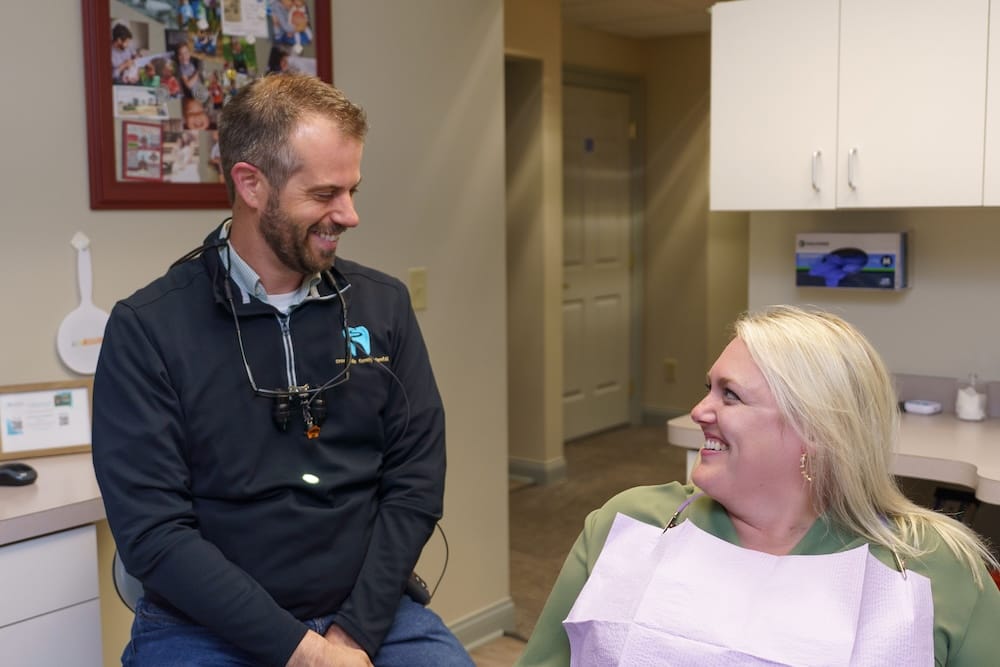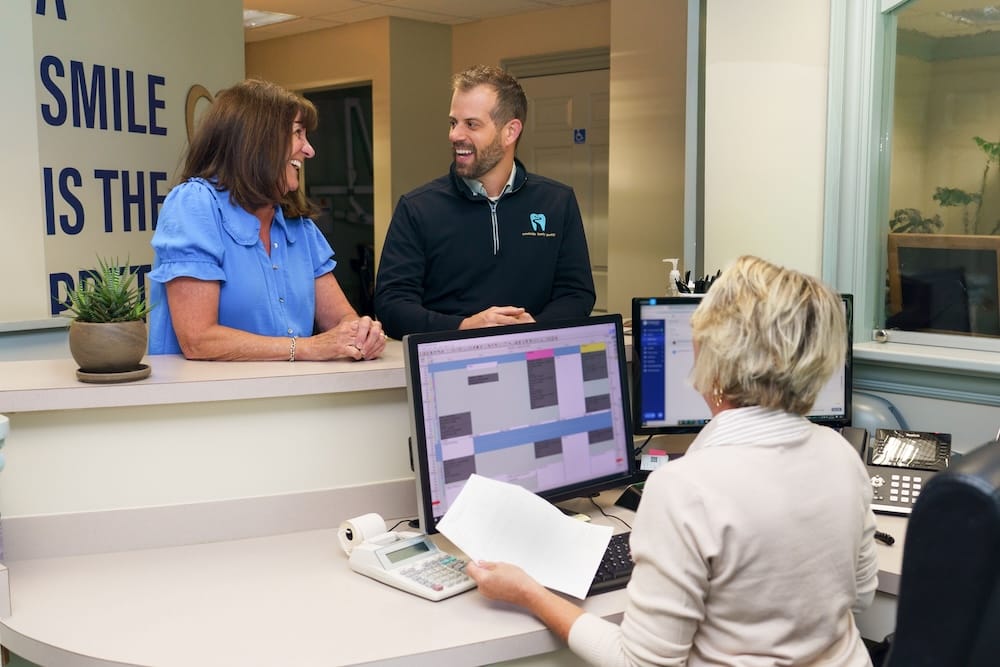For many people, going to the dentist is not easy. Dental anxiety is the fear of or worry about dental care. This is very common. It can be anywhere from mild nervousness to severe anxiety and dental phobia that makes it hard even to set up an appointment.
Feeling a little nervous is normal. However, if your fear of the dentist makes you skip checkups, it can hurt your oral health. The good news is that there are ways to handle these feelings. This can make dental visits a much better experience and even turn the dental office into a happy place.
The Psychology Behind Fear of the Dentist
To overcome dental fear, understand its origins—it often stems from past traumatic experiences or broader issues, such as anxiety disorder. Addressing these fears through therapy, communication with your dentist, or relaxation techniques is critical to conquering them.
Common Triggers for Dental Anxiety
Knowing what makes you anxious at the dentist can help you find ways to feel better. Triggers are different for everyone, but some you may recognize include:
- Past Negative Experiences: Bad pain during a visit, an uncaring dentist, or feeling lost during treatment can create long-lasting fear affecting future dental visits.
- Fear of Specific Procedures: The sounds from dental tools, the sting of needles, or worry about pain can lead to anxiety.
If you can figure out your triggers, talk to your dentist about them. This helps your dentist understand your worries. They can reassure you and change their techniques to make your visit easier and more comfortable.
Communicating Your Anxiety to Your Dentist
Honesty really is the best choice for handling dental anxiety. Telling your dentist about your fears is an important step to getting the best dental care, even if it feels a little awkward.
When your dentist knows about your anxiety, they can help make your experience more comfortable. You can talk about what makes you anxious, look into options like sedation, and create a treatment plan that meets both your oral health needs and emotional comfort.
Importance of Open Communication
It’s normal to feel nervous about sharing your fears, but keep in mind that dentists are there to help you! By talking about your dental anxiety, you allow your dental team to provide you with kind, tailored care.
Start by telling them about your anxiety when you book your dental appointment. This lets the staff prepare and, if needed, schedule more time for you. During your visit, share your concerns honestly. Mention any specific triggers or past events that make you feel anxious.
Remember, your dentist is your partner in keeping your oral health in good shape. When you communicate openly, they can better understand your needs and use coping mechanisms to make your visit easier.
Tips for Talking About Your Fears
Talking about your fears can be challenging. But remember, your dentist is there to help you. Here are some tips for talking about your fears:
- Be Specific: Instead of saying, “I’m anxious,” say what scares you. It could be specific procedures, sounds, or feelings.
- Ask Questions: Knowing what will happen can help with fear. Feel free to ask your dentist to explain each step clearly.
- Discuss Options: Talk about what can help you feel more at ease. You could ask about sedation options, taking breaks during procedures, or a signal you can use if you need to stop.
Many dental practices are ready to help patients with special needs like dental anxiety. By sharing your needs, you can find a dentist who cares about your comfort and aims to make your dental visit a good experience.
Relaxation Techniques to Alleviate Anxiety
Being honest about dental anxiety is crucial for receiving proper care. Sharing your fears with your dentist, though uncomfortable, is essential. Your dentist can then tailor your experience for comfort, addressing your concerns and exploring options like sedation dentistry to ensure both your oral health needs and emotional well-being are met.
Deep Breathing Exercises
Deep breathing exercises can be a powerful tool in reducing anxiety before a dental visit. By taking slow, deep breaths, you can calm your nervous system and help ease any feelings of stress or fear. Breathe in deeply through your nose, holding your breath for a moment, and then exhale slowly through your mouth. Repeat this process several times before your appointment to help relax your mind and body.
Progressive Muscle Relaxation
Progressive muscle relaxation is an excellent way to handle anxiety. It is helpful for general worry and dental visits. This method involves tensing and relaxing groups of muscles throughout your body.
First, find a comfortable position. Start with your toes. Tense the muscles there, hold for a few seconds, and then let go. Move up your body next. Tense and relax each group: calves, thighs, abdomen, hands, arms, shoulders, and face.
This method not only helps your muscles relax but also makes you aware of any tension you might feel. Being aware of your body can be really useful to manage anxiety during dental procedures.
Sedation Options for a Comfortable Dental Experience
For many people, techniques to relax and open communication are enough to handle anxiety. But if your fear is intense or you are having a complicated procedure, sedation dentistry can be a good choice. Sedation uses medicine to help you relax and feel less discomfort during dental treatment.
There are different options for sedation. You can have conscious sedation, like nitrous oxide (laughing gas), or deeper sedation, like oral medication or even general anesthesia. Your dentist can help you find the best sedation method based on your needs and medical history.
How to Decide If Sedation Is Right for You
Sedation dentistry can be a great option for those who experience high levels of fear or anxiety when visiting the dentist. Before deciding if sedation dentistry is right for you, it’s important to consider your individual needs and preferences. Talk to your dentist about your anxiety and discuss the different sedation options available. They can help you determine if sedation dentistry is the best choice for making your dental visit as stress-free as possible. Remember, the most important thing is to find a solution that works for you and helps you feel comfortable and at ease during your dental appointments.
Creekside Family Dental is Here for You
At Creekside Family Dental, we’re invested in giving you the best experience possible in oral care. Our specialists will happily accommodate anxious patients and provide the advice and support you need to manage anxiety while still caring for your teeth. Call us or go online to schedule an appointment when you’re ready.
 Meet Dr. Leffler
Meet Dr. Leffler
 Meet the Team
Meet the Team
 Dental Membership Plan
Dental Membership Plan
 Insurance Information
Insurance Information
 Patient Forms
Patient Forms
 Online Bill Pay
Online Bill Pay
 Your First Visit
Your First Visit





